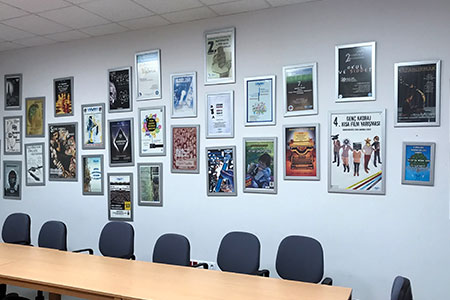THE GLOBAL CARDBOARD
The Global Cardboard Challenge is a project started in 2012 by a 9-year old child, Caine Monroy, when he made a presentation of the cardboard games that he had produced on his own in his father’s shop. After Caine and his game shop were discovered, the project was shared with the world on video. It went on to attract participants from many countries. The project develops the creativity of children, strengthens their critical thinking and communication skills, and encourages reflection. October 11th is celebrated as Global Cardboard Challenge Play Day in all countries that participate in the project.
Adapazarı ENKA Primary School students watch Caine’s video for inspiration and then start a project to create their own game. Firstly, a draw is held to decide what game they will make. They then use their creativity to make drawings of the game. While some students prefer to work individually, others prefer collaboration. They decide on the materials they will need to make the most creative cardboard game. The main material has to be cardboard. All the other necessary materials must be obtained from recycled materials. The entire project is conducted by the students. Using their creativity, they find solutions to the various problems they encounter. The students reflect throughout the process, putting forward their ideas on how to make the best creative game with the single material at hand.

A small cardboard box can be converted into a basketball hoop, a piece of cardboard and wooden sticks can be converted into a maize, a ball game, a game of finding toys in a box, a point-scoring game or a theatre stage. Working collaboratively throughout the process, the students stretch their imagination and at the same time develop their critical thinking and communication skills. Before the games are presented to the students’ friends, family and teachers, they make up the rules, decide on tickets and rewards and find ways of making the games as interesting as possible. On games day, to which parents are invited, the tickets are bought and the games begin. The event continues all day long with participants from all age groups. At the end of games day, a little party is organised for the students who participated in the project. They are given certificates and the creativity they displayed is appreciated.







